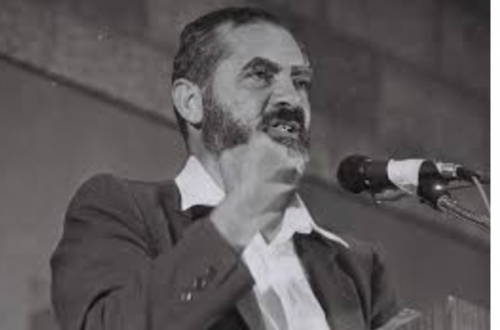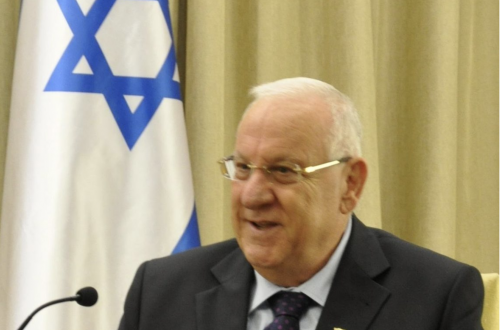This week’s Moral Maze set out to explore the following questions:
Are boycotts misguided empty political gestures more designed to make us feel self-righteous? And even if they are is outlawing them justified?
The choice of topic was of course prompted by the Government’s decision to prevent public bodies (such as local councils) from engaging in boycotts. I posted on this back in October, and found Claire Fox neatly summed up my own initial thoughts on the matter in her opening remarks.
‘In today’s circumstances increasingly it seems to me boycotts are censorious and illiberal, which is why it’s particularly galling that the Government’s way of dealing with it is to illiberally try and ban the banners.’ (4:45)
Jonathan Sacerdoti reported that 84% of Jews find boycotts intimidatory and 77% have identified antisemitism disguised as criticism of Israel. I sympathised with his position, and agreed with his contention that boycotts may well have more impact on British Jews than on the supposed target, Israel (7:30).
He argued that local councils shouldn’t have a foreign policy developed by a bullying fringe pressure group, and cited the high numbers of Jews currently leaving Europe. One response to this might be that many French Jews have left France for the UK even though France has tough anti-BDS laws and the UK doesn’t. Also, the bullying and intimidation that Sacerdoti quite rightly mentions won’t necessarily go away if the Government’s proposals become law. There will still be nothing to stop individuals or groups from hanging around outside Israeli stores or supermarkets which stock Israeli goods. And, to invoke the logic of an argument sometimes used against BDS (that boycott strengthens the Israeli right), any kind of ban will probably increase the anger and resolve of the boycotters and the toxicity of their rhetoric – the situation might get worse rather than better.
Another difficult question posed by the discussion with Sacerdoti was this – how far should majority positions within minority communities affect policies? Matthew Taylor made an analogy with a hypothetical majority of UK Muslims supporting ISIS. This was a distractingly over the top scenario, but a 2006 UK poll revealed a strong degree of British Muslim opposition to freedom of speech.
78% of Muslims thought that the publishers of the Danish cartoons of the Prophet Muhammed should be prosecuted, 68% thought those who insulted Islam should be prosecuted and 62% of people disagree that freedom of speech should be allowed even if it insults and offends religious groups
Of course the parallels are not exact – and, as far as I know, there is no polling data on British Jewish attitudes towards the Government’s proposals. Some might find a strong antisemitic element within BDS but still not favour this legislation. However I did very much agree with Sacerdoti when he insisted that those who follow a movement which alienates so many Jews need to reflect very carefully on their motives and methods (13:00).
John Hilary, the executive director of War on Want, was the next guest. Melanie Phillips challenged him by asserting that boycotts break international law by discriminating against Israel (15:00). The government asserts that local boycotts contravene the WTO agreement on government procurement. There are two sides – or at least some wriggle room – in many legal issues, and a temptation to invoke the law when it suits our case and ignore it when it doesn’t seem to. However I haven’t yet been able to identify any direct counterarguments to the Government’s invocation of the WTO agreement.
Hilary argued, in a rather weaselly way, that they were targeting companies – such as the French Veolia – rather than Israel per se. Philips went on to ask him why it was always Israel boycotters picked on – Hilary was able to sidestep this fair question by pointing out that the Government is also targeting those who want to boycott arms companies, particularly if they had dealings with countries such as Saudi Arabia.
Claire Fox, who agreed with him that the new proposals are problematic and antidemocratic, challenged him over the illiberal nature of the academic boycott, and quite rightly accused Hilary of being disingenuous when he replied that institutions, not individuals were targeted.
Daniel Johnson, founding editor of Standpoint, proved, as Michael Buerk put it, to be ‘sniffy’ about most boycotts. He suggested that BDS was aimed at destroying a country, whereas Matthew Taylor disagreed, arguing that boycotts were in fact a comparatively gentle step (20:00). Although I think both had a point, Johnson’s implication that many BDS supporters wish to see Israel disappear as a Jewish state, not just fix the settlement issue, is of course significant here.
Johnson also complained that people hadn’t been consulted on the issue. Matthew Taylor’s response – that we don’t have direct democracy – was a fair one. But what would the British public say if they were consulted? Brits seem to lean more towards the Palestinian side, although most people have balanced or uncertain views. A 2012 poll showed that support for a cultural boycott was a minority but not a fringe view, and I’d be surprised if rather more people weren’t inclined to support a boycott of settlement goods. I also wasn’t fully convinced by Johnson’s point that there was a complete distinction between the national government deciding to sanction a country, and local bodies taking similar steps. Your stance on this might in part depend on whether you see e.g. moves against the arms trade as foreign policy (thought of as a prerogative of the national government) or ethical (and thus probably a fair focus for local decision making).
The last guest, Rob Harrison from Ethical Consumer magazine, had a spat with Melanie Phillips, but this interview didn’t greatly advance the argument.
In the final summing up Claire Fox spoke very well about the way Israel is singled out as a pariah state:
‘ … antisemitic nods that are going on in the particular way Israel is treated as the country that we have to boycott if we’re going to be ethical otherwise we’re supporting apartheid states and so on’.
I also agreed with Melanie Phillips’ suggestion that there is much unfairness, and worse, in the way Israel boycotts are promoted. But Jill Kirkby was also right, I think, to remind us that this debate was about more than just Israel, and that the government seems to be quashing local activism more broadly. (You might – or might not – like to read Owen Jones on this.)
Finally I very much like Claire Fox’s dismissal of the solidarity argument:
‘It seemed to me to be a complete abdication of any moral decision-making because if you are going to say … for example Saudis asked us to do something we didn’t agree with … it’s identity politics writ large, it’s actually using the Palestinians as a stage army. (39:00)


